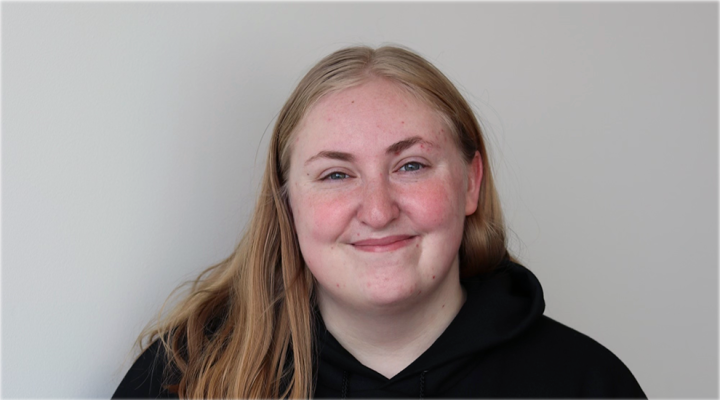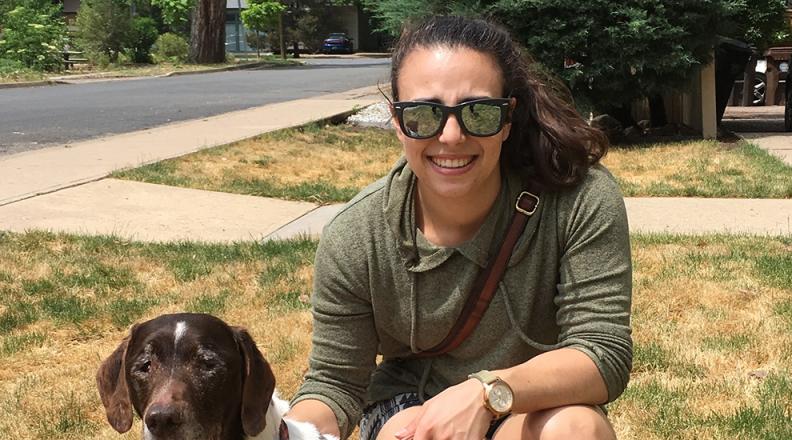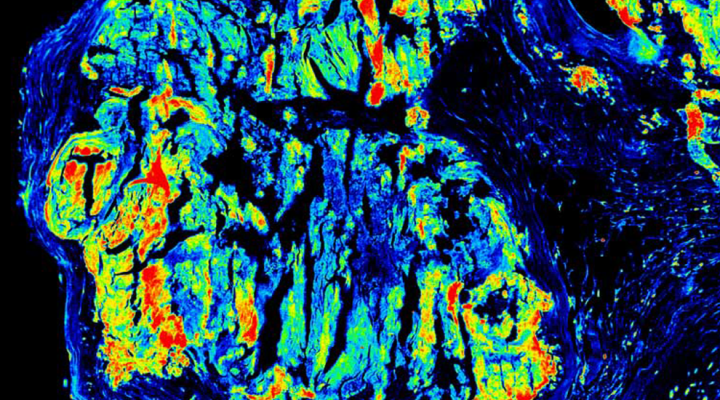Pamela Badian-Pessot’s parents met while they were earning graduate degrees at Stanford University. It may be because of this that Badian-Pessot thought of graduate school the way many people think of college. “Growing up, I just always assumed that I would go to graduate school,” she says. But then as she neared the end of her undergraduate degree programs in Mathematics and Economics at Wells College, she was a little less certain.
“When I was an undergrad I had an REU (Research Experience for Undergraduates) at North Carolina State University,” says Badian-Pessot. “And while I was there I saw a panel discussion where an NC State grad student talked about having done a one-year post-baccalaureate program at Smith College in Northampton, MA.” Hearing that was all Badian-Pessot needed to check out the Smith College program for herself. She says, “I needed that extra year to really figure out what I wanted to do.”
Her year at Smith convinced Badian-Pessot that a graduate degree program should be her next step. Of course, the next questions to answer were 1) what to study?, and 2) where to study it? As an undergraduate at Wells, Badian-Pessot had been introduced to Operations Research as a field of study and it clicked with her. She knew she wanted to apply the math she was learning to real-world problems. As for where to study, “I was not convinced I could get into Cornell, but several people at Smith convinced me I should try. When I got in, it was an easy decision to come to Ithaca.”
Badian-Pessot in now in the fourth year of her doctoral studies at Cornell’s School of Operations Research and Information Engineering (ORIE), working with her advisor, Professor Mark Lewis. One line of Lewis’s research focuses on using Markov decision processes to optimize queueing policies. Badian-Pessot is trying to find optimal policies for data centers with energy-use considerations. “Some of these large data centers have many servers, but not all of the servers are needed all of the time,” she explains. “With my work I want to help these centers answer a basic, yet very important, question: ‘when should we turn some of these servers off?’”
Queues are a stochastic process which means they are random. Because of this randomness it can be extremely tricky to prove that a particular policy solution is actually the optimal one. Markov decision processes provide a framework to analyze these processes. Badian-Pessot, in a paper that is currently under review, has done just that. The paper, “Optimal control policies for an M/M/1 queue with a removable server and dynamic service rates,” was co-written with Mark Lewis and Professor Douglas Down of McMaster University in Hamilton, Ontario.
“Even though the process we used sounds like the most intuitive process, it took a couple of years to prove the result,” says Badian-Pessot. “Intuition is not always the best yardstick when it is a Markovian process you are looking at.”
Badian-Pessot is hoping to graduate with her Ph.D. in Applied Probability and Statistics in 2020. Her work thus far has been fairly theoretical, but “I don’t want to do theory forever,” says Badian-Pessot. “I want to go into industry when I graduate, but I am not sure which one yet.” One of the many benefits of an advanced degree in Operations Research is its applicability across many fields.
When she is not busy thinking about stochastic processes and how best to manage them, Badian-Pessot spends time on the extensive and challenging indoor climbing wall at Cornell. She is also a huge baseball fan, having spent some of her time at Smith College helping to write a book chapter on the current state of analytics in baseball.





